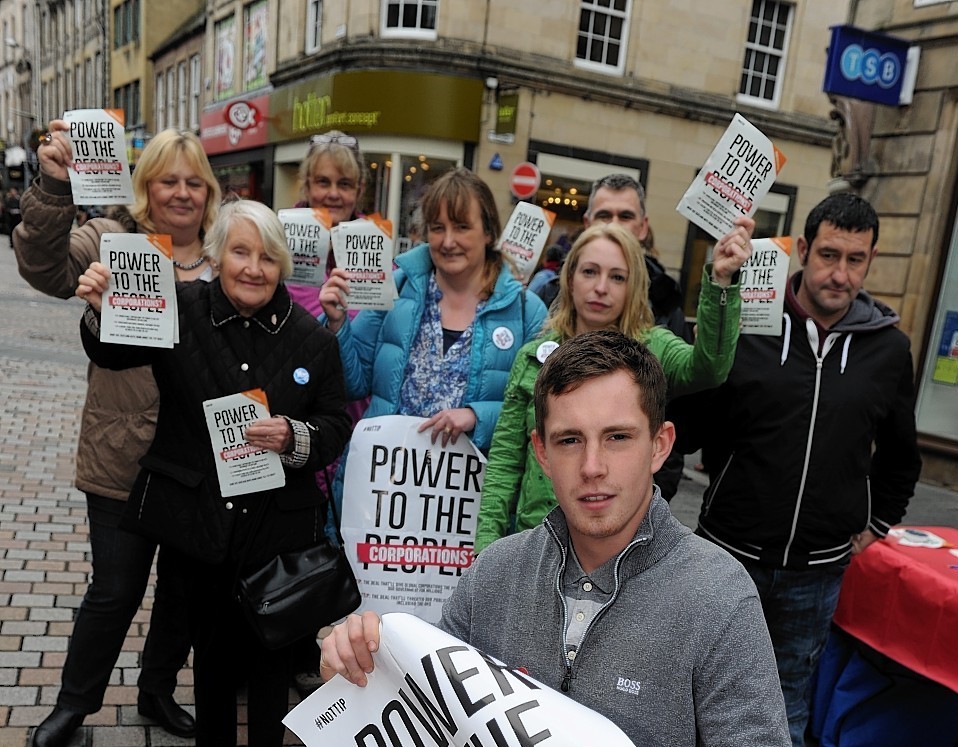Campaigners took to the streets of Inverness city-centre at the weekend in protest at a proposed trade agreement which they claim could lead to widespread privatisation.
Members of the campaign group, 38 Degrees, say the NHS is among organisations which could provide rich pickings for multinational companies.
They fear the Transatlantic Trade and Investment Partnership (TTIP) would open up competition from American private healthcare providers in particular.
Saturday’s event in Inverness, which involved dozens of people, coincided with a series of Europe-wide events organised in protest at against the agreement between the European Union and the United States.
Organiser Conor Cheyne said: “TTIP sums up what is wrong with politics today – deals being done and decisions made with no input from the public.
“Our democracy is on a knife-edge already, and TTIP will kill what is left.”
Health professionals have added their voices to the campaign, including Kenneth Barker, consultant anaesthetist at Raigmore Hospital, who is one of 51 signatories to a letter critical of the effect TTIP would have on Scotland.
It says: “There is no opt-out possible for the currently devolved Scottish NHS. The planning behind UK involvement in TTIP appears to go back to Margaret Thatcher’s Centre for Policy Studies in the 1980s, designing reforms to open up public services for privatisation.”
But Trade Minister Lord Livingston has insisted the TTIP would benefit businesses, workers, and consumer.
He added: “Markets would be opened, so for example lamb and venison could be exported to the US, EU import tariffs of up to 12%, on popular US goods such as jeans and cars, would be removed, and small firms would benefit from a slashing of red tape.”
The TTIP, also known as the Transatlantic Free Trade Area (TAFTA), could be finalised by the end of this year.
